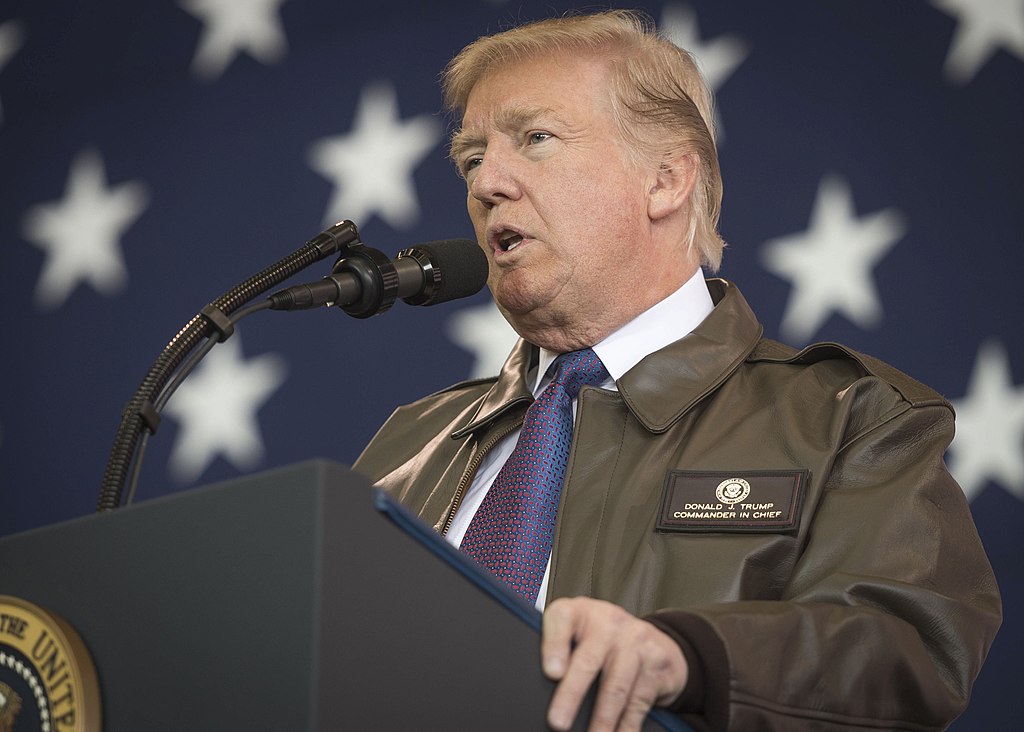Former President Donald Trump’s unexpected legal intervention in the upcoming U.S. Supreme Court case regarding TikTok has sent shockwaves through political and legal circles. With a ban on the Chinese-owned platform looming on January 19, Trump’s legal brief—replete with self-aggrandizing rhetoric—has ignited fresh debates about the role of the judiciary and executive influence.
Trump’s TikTok Defense: A Self-Promotion or a Legal Argument?
In a legal filing submitted last week, Trump’s attorneys presented an unusual argument emphasizing his unparalleled social media presence. The brief declared, “President Trump is one of the most powerful, prolific, and influential users of social media in history,” highlighting his 14.7 million TikTok followers. It framed TikTok as a critical platform for “freedom of expression, including core political speech,” and credited Trump’s adept use of the app for his success in connecting with voters during the recent election campaign.
Legal analysts, however, have questioned the merit of such a filing. Joyce Vance, a former federal prosecutor, criticized the brief for prioritizing Trump’s self-image over the central legal issues. “This isn’t about the law or the facts,” Vance wrote, adding that Trump’s filing seemed more like a personal branding exercise than a substantive argument.
Supreme Court’s Response and Implications for TikTok’s Future
The Supreme Court’s decision on whether to uphold the TikTok ban has broader implications for freedom of speech and international business relations. The case hinges on whether U.S.-based platforms can continue to host TikTok amid security concerns. Critics argue that the ban undermines freedom of expression, while proponents cite potential national security risks.
Trump’s involvement has added another layer of complexity. Represented by John Sauer, his nominee for Solicitor General, Trump’s brief suggests an eagerness to negotiate a resolution outside the courtroom. Vance speculated that Trump’s filing carries an undertone of “kleptocracy,” hinting at ulterior motives that may not align with the broader public interest.
Netizens React: Outrage and Speculation Ignite Social Media
The filing has triggered mixed reactions on social media, with netizens weighing in on Trump’s motives and the case’s potential outcomes.
- @PoliticalWatchdog tweeted, “Trump defending TikTok? Sounds like someone’s trying to stay relevant in the Gen Z demographic.”
- @JusticeMatters wrote, “It’s not about free speech; it’s about free publicity. The Supreme Court should see right through this.”
- @FreeSpeechAdvocate countered, “Agree or not, TikTok is a tool for communication. Banning it feels like a step backward.”
- @LegalEagleUSA added, “Trump’s argument is less about the law and more about stroking his ego. SCOTUS should focus on facts.”
- @TechSavvyCitizen remarked, “This case is a smokescreen. The real issue is how we balance security and freedom in the digital age.”
- @PopCultureGuru quipped, “Trump on TikTok? What’s next, dance challenges in court? The drama never ends!”
What Lies Ahead for TikTok and Its Users?
As the January 19 deadline approaches, the Supreme Court’s ruling will set a significant precedent for regulating social media platforms. Trump’s filing, though controversial, underscores the intersection of politics, law, and technology in today’s digital landscape. Whether the justices will entertain Trump’s arguments remains uncertain, but their decision will undoubtedly shape the future of TikTok and similar platforms in the United States.



 Philippines, U.S., and Japan Conduct Joint Naval Drills in South China Sea to Boost Maritime Security
Philippines, U.S., and Japan Conduct Joint Naval Drills in South China Sea to Boost Maritime Security  Santos Wins Court Case Over Net Zero and Sustainability Claims
Santos Wins Court Case Over Net Zero and Sustainability Claims  Federal Judge Blocks Virginia Social Media Age Verification Law Over First Amendment Concerns
Federal Judge Blocks Virginia Social Media Age Verification Law Over First Amendment Concerns  Australian PM Calls Alleged Western Australia Terror Plot “Deeply Shocking” After Arrest
Australian PM Calls Alleged Western Australia Terror Plot “Deeply Shocking” After Arrest  Federal Judge Orders Trump Administration to Facilitate Return of Deported Honduran Student
Federal Judge Orders Trump Administration to Facilitate Return of Deported Honduran Student  HHS Adds New Members to Vaccine Advisory Panel Amid Legal and Market Uncertainty
HHS Adds New Members to Vaccine Advisory Panel Amid Legal and Market Uncertainty  U.S.-Iran Nuclear Talks Show Progress but No Breakthrough Amid Rising Military Tensions
U.S.-Iran Nuclear Talks Show Progress but No Breakthrough Amid Rising Military Tensions  Texas Attorney General Ken Paxton Sues Sanofi Over Alleged Healthcare Bribery Scheme
Texas Attorney General Ken Paxton Sues Sanofi Over Alleged Healthcare Bribery Scheme  Venezuela Oil Exports to Reach $2 Billion Under U.S.-Led Supply Agreement
Venezuela Oil Exports to Reach $2 Billion Under U.S.-Led Supply Agreement  Trump Administration Sues Harvard Over Alleged Race-Based Admissions Practices
Trump Administration Sues Harvard Over Alleged Race-Based Admissions Practices  AbbVie Sues HHS Over Medicare Price Controls on Botox Under Inflation Reduction Act
AbbVie Sues HHS Over Medicare Price Controls on Botox Under Inflation Reduction Act  Federal Court Fines Mobil Oil Australia A$16 Million for Misleading Fuel Claims
Federal Court Fines Mobil Oil Australia A$16 Million for Misleading Fuel Claims  Trump Floats “Friendly Takeover” of Cuba as Rubio Reportedly Engages in Talks
Trump Floats “Friendly Takeover” of Cuba as Rubio Reportedly Engages in Talks  Yoon Suk Yeol Apologizes After Life Sentence for Martial Law Decree in South Korea
Yoon Suk Yeol Apologizes After Life Sentence for Martial Law Decree in South Korea  Israel Declares State of Emergency as Iran Launches Missile Attacks
Israel Declares State of Emergency as Iran Launches Missile Attacks  South Korean Court to Deliver Landmark Verdict in Yoon Suk Yeol Insurrection Case
South Korean Court to Deliver Landmark Verdict in Yoon Suk Yeol Insurrection Case  Federal Judge Blocks Trump Administration’s $600 Million Public Health Funding Cuts to Democratic-Led States
Federal Judge Blocks Trump Administration’s $600 Million Public Health Funding Cuts to Democratic-Led States 































